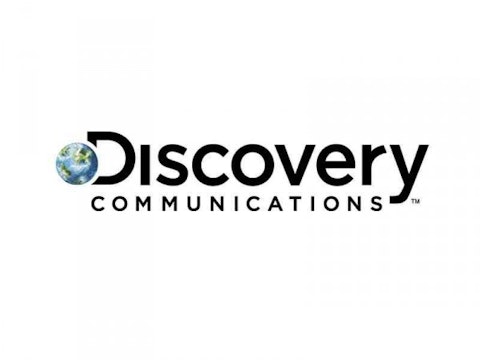Discovery Communications Inc. (NASDAQ:DISCA) deserves more investment consideration than it receives, but could it possibly be a better investment than Viacom, Inc. (NASDAQ:VIAB), or even The Walt Disney Company (NYSE:DIS)?
Discovering adrenaline
Did you watch Nik Wallenda tightrope his way across a 1,500-foot high and 1,400-foot long canyon last Sunday? If not, you missed out on the most popular program of the evening. The Wallenda Tightrope Walk on Discovery attracted 13 million viewers, surpassing the always-popular 60 Minutes by an astounding five million viewers.
This live and real event is just one example of how Discovery Communications Inc. (NASDAQ:DISCA) is gearing its business toward current trends. Below, we’ll take a look at the company’s current goals, and whether or not it’s a better option its peers.
Understand Discovery
Founder and Executive Chairman John Hendricks didn’t have a television in his home until he was five years old, but once that television arrived, Hendricks was obsessed. However, unlike most children, he found a keen liking for documentaries and educational programs.
When cable’s popularity exploded in the 1970s, many channels offered different themes, but none offered documentaries. Hendricks needed to fill that gap. Luckily for a big part of the viewing population, Hendricks had an entrepreneurial spirit. At first, he only raised $5 million in financing versus the $25 million that was needed, but he soon contacted John Malone, and the rest is history.
Today, Discovery Communications Inc. (NASDAQ:DISCA) goes well beyond the Discovery channel. For instance, if you want crime and forensic programming, then you might enjoy Investigation Discovery, and if you want to watch people’s unique and interesting lifestyles, then you might enjoy TLC. Other Discovery Communications Inc. (NASDAQ:DISCA) channels include Animal Planet, Science Channel, Military Channel, Planet Green, Fit & Healthy, and Velocity. Altogether, Discovery Communications owns and operates 162 networks in 223 countries, and it has 2 billion subscribers. That last number may surprise some people, and it’s a number that will likely pique the interest of investors.
Looking ahead, Discovery wants to go beyond just documentaries and educational programming by offering more real authentic events. Perhaps more importantly, Discovery Communications Inc. (NASDAQ:DISCA) is in the planning stages for an Internet streaming service. With this service, viewers can pay a small fee to access an incredibly large library of already-aired documentaries and reality shows. Discovery Communications is currently working with content distributors to make this possible.
Discovery Communications vs. peers
Viacom, Inc. (NASDAQ:VIAB) is a larger company than Discovery Communications, but not by much. It currently has a market cap of $32.93 billion, whereas Discovery Communications has a market cap of $27.39 billion.
Viacom is a highly strategic company in its own right. Its Media Networks segment owns MTV, VH1, CMT, BET, Nickelodeon, Nick Jr., Comedy Central, TV Land, and Spike. Take one more look at that list and try to find a demographic that isn’t covered. Viacom’s Filmed Entertainment segment produces, finances, and distributes under the names Paramount Pictures, MTV Films, Paramount Vantage, Paramount Classics, Insurge Pictures, and Nickelodeon Movies. In total, it has produced over 3,000 movies and television shows.
The Walt Disney Company (NYSE:DIS) is much larger than both companies, with a market cap of $113.84 billion. Disney owns nine television stations, including ABC and ESPN (Disney’s largest revenue generators). It also owns 37 radio stations, including ESPN Radio and Radio Disney. Of course, Disney also owns the most popular theme parks in the world. In the second quarter, Disney’s impressive 32% earnings growth came on the heels of ESPN advertising sales and longer stays at its theme parks. There is no reason to think that these trends will come to a sudden halt in the near future.
All three companies seem to present quality investment opportunities, but one of them is likely to be a better option than the other two.





